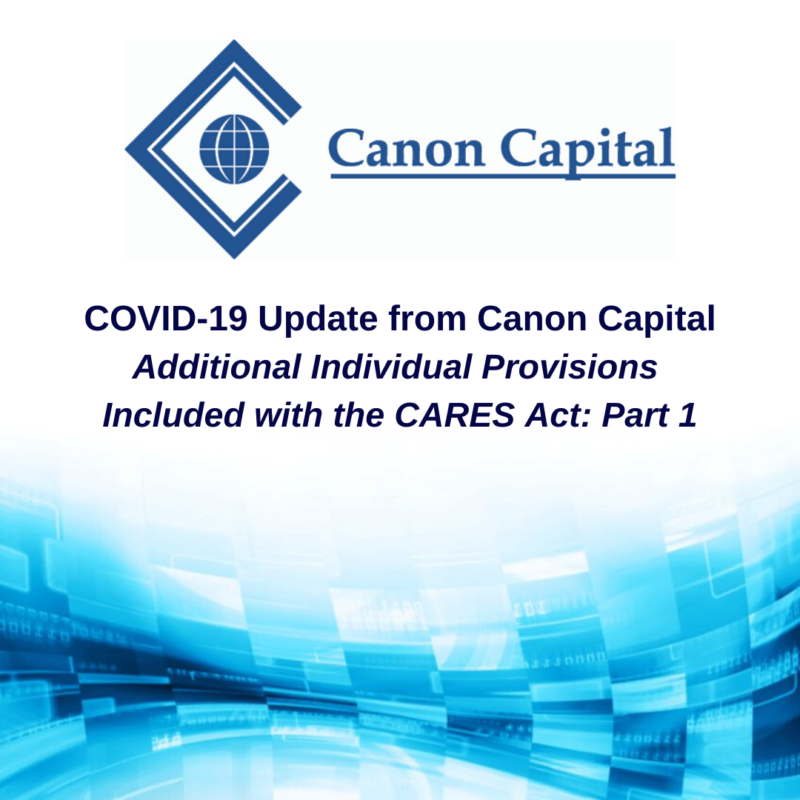Before we discuss the additional individual provisions included in the CARES Act, we want to remind you about individual tax filing and payment due dates. Individual filing dates and payment due dates have been pushed back from April 15, 2020 to July 15, 2020. This includes first quarter estimates due April 15. As of this writing (March 31, 2020), the due date for the June 15 estimate has NOT been postponed. But we highly suspect it eventually will be pushed back as well.
As stated previously, the CARES Act was a mammoth bill, both in costs and scope. Here’s a summary of some of the individual provisions in the law.
Recovery Rebates and Credits
By far, the most widely-known provision is regarding the rebate checks. Eligible individuals are allowed a credit of $1,200 ($2,400 for joint filers), plus $500 for each qualifying child for the tax year 2020. An eligible individual is any individual who has a Social Security number, is not a nonresident alien, who can not be claimed as a dependent on another taxpayer’s return. A qualifying child means a qualifying child of the taxpayer, as defined for purposes of the dependency exemption who hasn’t turned 17.
The credit is phased out by 5% of the eligible individual’s adjusted gross income in excess of $75,000 (all filers other than joint and head of household), $112,500 (head of household), $150,000 (joint filers). Thus, the credit phases out entirely for taxpayers without dependent children at $99,000 (single) and $198,000 (joint filers).
The rebates are based on information provided on the taxpayer’s 2019 return. If an individual hasn’t yet filed a 2019 income tax return, the IRS will determine the amount of the rebate using information from the taxpayer’s 2018 return. If 2018 was not filed, IRS will use information from the individual’s 2019 Social Security statement.
The IRS may make the rebate electronically to any account to which the payee authorized the IRS to deposit a refund on or after January 1, 2018.
If the taxpayer receives an advance rebate during 2020 that was less than the credit to which the taxpayer is entitled, the taxpayer will be able to claim the balance of the credit when filing their 2020 return. If the taxpayer receives an advance rebate during 2020 that was for more than the credit to which the taxpayer is entitled, the taxpayer will not have to pay back the excess.
New $300 Charitable Deduction and Suspension of Limits
For 2020, individuals who do not itemize, a new $300 charitable deduction is allowed “above the line” for any qualified charitable donation.
The Act also removed the limitation on cash contributions. For 2020, qualified cash contributions may offset 100% of income vs. 60%. If an individual’s contributions exceed their income, the amount may be carried forward. In addition, contributions to a donor-advised fund or a 509(a)(3) organization do not count as qualified contributions towards the 100% limit.
Should you have any questions or concerns regarding this or any other aspect of this new legislation, please contact us via email or by calling 215-723-4881.

